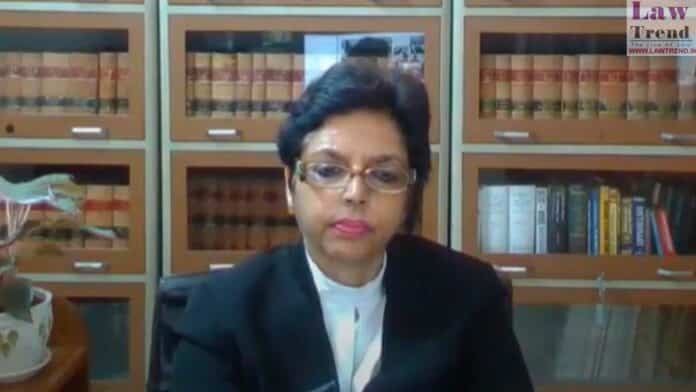The judiciary must be allowed to interpret the Constitution and its independence is not just a legal principle but fundamental pillar of a vibrant democracy, Justice Hima Kohli of the Supreme Court has said.
“It is imperative that all three pillars (legislature, executive and judiciary) of the State work in parallel and not in tandem, at arm’s length and not hand in hand, to give strength to the democratic system.
“This itself will preserve the independence of the judiciary and protect its autonomy and impartiality. It is equally essential to recognise the judiciary’s role in the constitutional dialogue as it acts like a safety valve for fostering our democratic values,” Justice Kohli said.
She was speaking on the subject of “Independent Judiciary: Critical for a Vibrant Democracy” at a function organised by FICCI in collaboration with Bharat Chamber of Commerce and the Indian Council of Arbitration in Kolkata on Saturday.
“Independence of the judiciary is not just a legal principle but a fundamental pillar of a vibrant democracy. The Indian judiciary has shown remarkable resilience and determination in maintaining its independence and integrity and discharging its constitutional duties,” she said.
The apex court judge spoke on various aspects related to judicial independence and said that the judiciary, by upholding the rule of law and ensuring that the government operates within the remit of its authority, promotes stability and effectiveness of democratic institutions.
It is equally essential to recognise the judiciary’s role in the constitutional dialogue as it acts like a safety valve for fostering our democratic values, she said.
“The judiciary must be allowed to interpret the Constitution and make decisions based solely on the Constitution and the laws. It is this interpretation that offers a guarantee for the Constitution to remain a living document that keeps on evolving over time, while remaining rooted in its fundamental values and principles.
“Therefore, having a robust constitutional dialogue in India, where all the branches of the State engage in a meaningful conversation with each other and at the same time, respect each other’s independence and the respective delineated roles, is the best thing for a vibrant democracy,” she said.
The judiciary also protects citizens from arbitrary exercise of power and ensures that their rights and freedom are respected and upheld, she said.
“Absent the judiciary’s role of maintaining checks and balances, democratic institutions would be vulnerable to corruption, abuse of power and erosion of the trust of the citizens in the government. The role of the courts in upholding the rule of law and providing checks and balances on other wings of the State makes the judiciary a critical pillar of democracy,” she said.
The judge referred to the imposition of the Emergency and said the judiciary was put to a severe test during the period.
“In the face of such adversity, some of the judges of the Supreme Court and at least nine High Courts had shown remarkable courage and independence. They stood up to the government’s attempts to erode judicial autonomy and protected fundamental rights of the citizens,” she said.
Justice Kohli also spoke about recent key judgements like the one which declared privacy as a fundamental right and part of right to life and personal liberty and said, “the judiciary has been at the forefront of protecting the citizens’ rights, particularly in cases relating to civil liberties, environmental protection and gender justice.”
Dealing with the role of media, she said it plays a significant role in informing the public and facilitating civic engagement.




